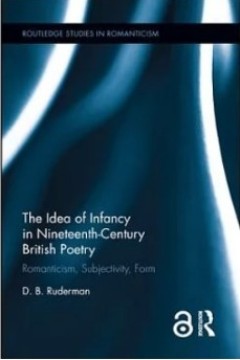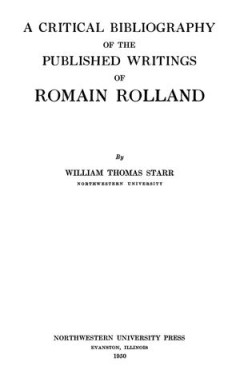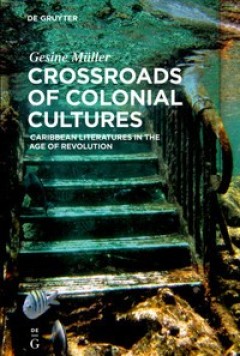Filter by

Vladimir Solov’ëv's Justification of the Moral Good Moral Philosophy
This new English translation of Solov’ëv’s principal ethical treatise, written in his later years, presents Solov’ëv’s mature views on a host of topics ranging from a critique of individualistic ethical systems to the death penalty, the meaning of war, animal rights, and environmentalism. Written for the educated public rather than for a narrow circle of specialists, Solov’ëv’s w…
- Edition
- -
- ISBN/ISSN
- 978-3-319-12775-0
- Collation
- -
- Series Title
- -
- Call Number
- -

The Cold War in the classroom : international perspectives on textbooks and m…
This book explores how the socially disputed period of the Cold War is remembered in today’s history classroom. Applying a diverse set of methodological strategies, the authors map the dividing lines in and between memory cultures across the globe, paying special attention to the impact the crisis-driven age of our present has on images of the past. Authors analysing educational media point t…
- Edition
- -
- ISBN/ISSN
- 9783030119997
- Collation
- -
- Series Title
- -
- Call Number
- 909.825072
Anti-Inflammatory Potential of Ginseng for Wound Healing
- Edition
- -
- ISBN/ISSN
- 978-1-83969-056-3
- Collation
- -
- Series Title
- -
- Call Number
- -
Smart Grid Project Planning and Cost/Benefit Evaluatio
- Edition
- -
- ISBN/ISSN
- 978-1-83962-564-0
- Collation
- -
- Series Title
- -
- Call Number
- -

Advanced Communication and Control Methods for Future Smart Grid
- Edition
- -
- ISBN/ISSN
- 978-1-83962-564-0
- Collation
- -
- Series Title
- -
- Call Number
- -

The Idea of Infancy in Nineteenth-Century British Poetry : Romanticism, Subje…
This book radically refigures the conceptual and formal significance of childhood in nineteenth-century English poetry. By theorizing infancy as a poetics as well as a space of continual beginning, Ruderman shows how it allowed poets access to inchoate, uncanny, and mutable forms of subjectivity and art. While recent historicist studies have documented the "freshness of experience" childhood co…
- Edition
- -
- ISBN/ISSN
- 9781317276487
- Collation
- 288 halaman
- Series Title
- -
- Call Number
- 800 RUD i

Microhistories of technology : making the world
In this open access book, Mikael Hård tells a story of how people around the world challenged the production techniques and products brought by globalization. Retaining their autonomy and freedom, creative individuals selectively adopted or rejected modern gadgets, tools, and machines. In standard historical narratives, globalization is portrayed as an unstoppable force that flattens all obsta…
- Edition
- -
- ISBN/ISSN
- 9783031228131
- Collation
- xx, 290p
- Series Title
- -
- Call Number
- 907.2

A Critical Bibliography of the Published Writings of Romain Rolland
Late nineteenth-and early twentieth-century French writer Romain Rolland remains best known for his epic coming-of-age tale, Jean Christoph. In A Critical Bibliography of the Published Writings of Romain Rolland William Thomas Starr Starr painstakingly collects the information on all writings by and about this prolific author through 1949. Organized into two parts, the bibliography lists the wr…
- Edition
- -
- ISBN/ISSN
- 9780810138711
- Collation
- 168 halaman
- Series Title
- -
- Call Number
- 800 STA c

Crossroads of Colonial Cultures : Caribbean Literatures in the Age of Revolution
The study examines cultural effects of various colonial systems of government in the Spanish- and French-speaking Caribbean in a little investigated period of transition: from the French Revolution to the abolition of slavery in Cuba (1789–1886). The comparison of cultural transfer processes by means of literary production from and about the Caribbean, embedded in a broader context of the cir…
- Edition
- -
- ISBN/ISSN
- 9783110495416
- Collation
- 367 halaman
- Series Title
- -
- Call Number
- 900 MUL c

Before Einstein : The Fourth Dimension in Fin-de-Siècle in Literature and Cu…
Before Albert Einstein proposed the concept of four-dimensional spacetime, late Victorian scientists, radical philosophers and writers were discussing the possibility of a different kind of fourth dimension. Before Einstein offers the first book-length examination of the impact of pre-Relativity four-dimensional theory on literature and culture at the turn of the twentieth century.
- Edition
- -
- ISBN/ISSN
- 9781783086238
- Collation
- 222 halaman
- Series Title
- Anthem Nineteenth-Century Series
- Call Number
- 800 THR b
 Computer Science, Information & General Works
Computer Science, Information & General Works  Philosophy & Psychology
Philosophy & Psychology  Religion
Religion  Social Sciences
Social Sciences  Language
Language  Pure Science
Pure Science  Applied Sciences
Applied Sciences  Art & Recreation
Art & Recreation  Literature
Literature  History & Geography
History & Geography